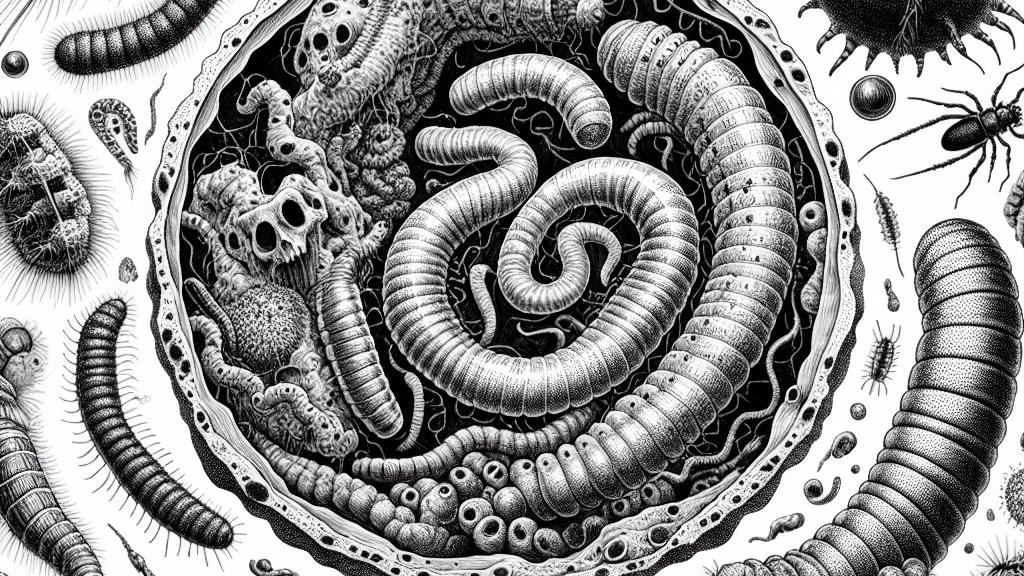Understanding the Strange World of Parasites and Their Importance in Nature
Overview
- Parasites play critical roles in ecosystems, influencing the survival of countless species.
- Though often associated with disease, many parasites provide unexpected benefits.
- Exploring the complexities of parasites can transform our view of nature and its interconnectedness.

The Unseen World of Parasites
Often seen as bothersome intruders, parasites are, in fact, essential to the intricate tapestry of life on Earth. These fascinating organisms range from tiny protozoa, like those inhabiting the intestines, to larger helminths, such as tapeworms. Here’s a surprising fact: nearly 40% of all animal species might be classified as parasites! Consider the humble flea or the mischievous tick; while they may inspire shudders, they play crucial roles in controlling host populations, thereby maintaining ecological balance. By affecting the distribution and abundance of their hosts, parasites contribute to the healthy functioning of ecosystems.
The Good, the Bad, and the Ugly
When it comes to parasites, our immediate reaction is often one of disgust or fear. However, it’s time to reframe our thinking! For instance, leeches—those slippery little creatures that most people would rather avoid—are actually valuable assets in modern medicine. Their saliva contains compounds that promote healing, making them effective allies in surgeries to reduce swelling and ensure proper blood flow. Isn’t it incredible how a creature we dismiss can offer such significant health benefits? This perspective not only broadens our understanding but also highlights the nuanced roles that parasites play, pushing us to reconsider the labels we often assign them.
Parasites and Human Health
The impact of parasites on human health cannot be overstated. Consider Toxoplasma gondii, a widely misunderstood organism found in cat feces that infects approximately one-third of humanity without revealing any signs! Interestingly, research suggests it can influence human behavior, sparking increased risk-taking and even entrepreneurship. Imagine how a seemingly innocuous parasite can inspire major life decisions! Moreover, in the U.S., parasites like giardia and roundworms lead to chronic health issues for many people. By exploring the multifaceted nature of parasites—acknowledging both their harmful and beneficial aspects—we invite a richer conversation about their significance in our lives and in the natural world.

Loading...